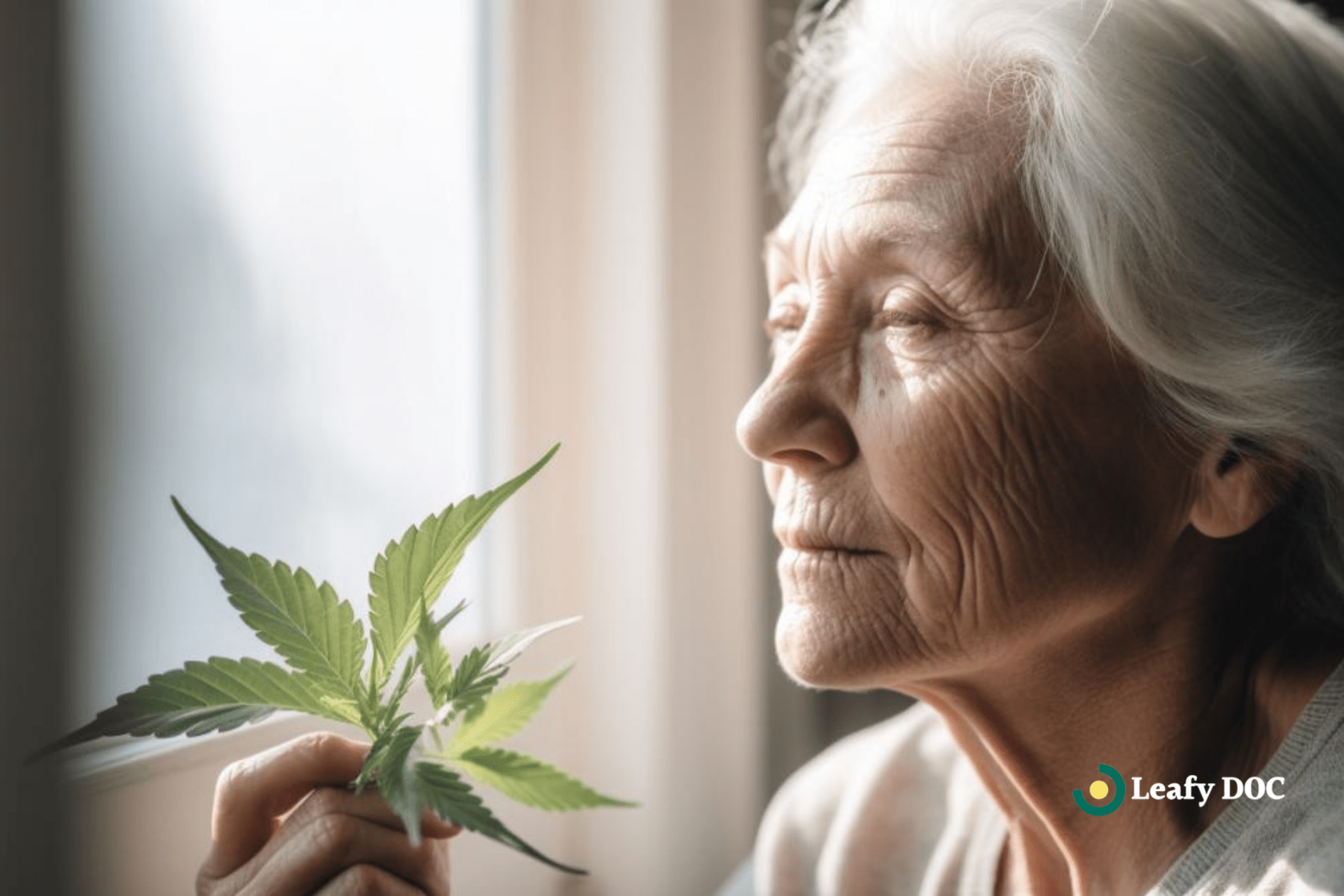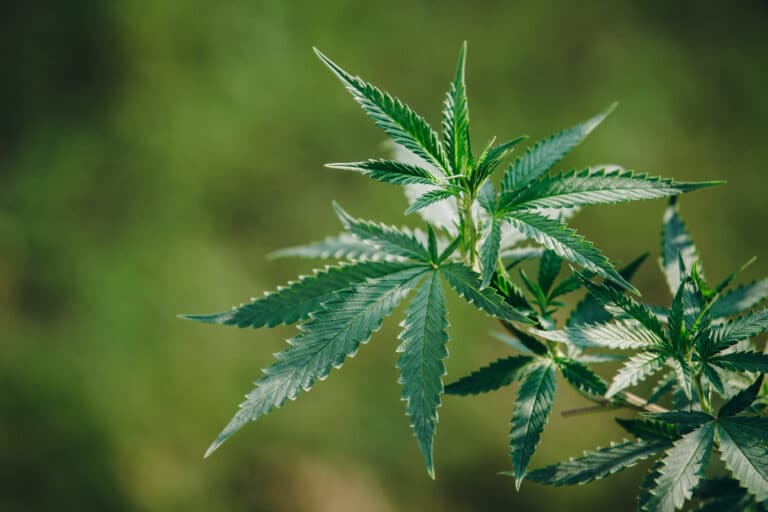Understanding The Impact Of Cannabis On Brain Function In Aging
by Tayyaba Amir · May 12, 2024
Uncover the fascinating link between cannabis and brain function in aging individuals. Explore cutting-edge research on cognitive health implications. Click to learn more about how cannabis could impact your brain as you age!

Have you ever wondered about the effects of cannabis on brain function as you age? As you navigate through the complexities of aging, it’s important to understand how cannabis may impact cognitive function and overall brain health. In this article, we will explore the neuroprotective properties of cannabinoids, the potential risks of cannabis use in older adults, and the latest research on cannabis and Alzheimer’s disease.
As you seek to maintain optimal brain function as you grow older, it’s important to be informed about the potential benefits and risks of cannabis use. While cannabinoids have been found to have neuroprotective properties that may benefit aging brains, it’s also important to consider the potential risks associated with cannabis use in older adults.
By understanding the latest research and recommendations for safe cannabis use in aging populations, you can make informed decisions about how cannabis may impact your brain function as you age.
Key Takeaways
- Cannabis may have both positive and negative effects on cognitive function and brain health in aging individuals
- Cannabinoids have been suggested to have neuroprotective properties, potentially benefiting brain function in older adults
- Risks of cannabis use in older adults include cognitive impairment, drug interactions, respiratory issues, addiction, and legal concerns
- Latest research indicates potential positive effects of cannabis on Alzheimer’s disease, suggesting a promising avenue for further exploration
Effects of Cannabis on Cognitive Function
Imagine the possibilities of cannabis being able to enhance cognitive abilities in older adults, providing them with a renewed sense of mental clarity and sharpness. It’s like offering a helping hand to those who have spent a lifetime nurturing others, giving them the gift of improved cognitive function to continue serving their communities and families with vigor.
Furthermore, the exploration of cannabis’s effects on cognitive function opens up a realm of potential benefits for those facing age-related cognitive decline. By understanding how cannabis interacts with the brain, we can unlock new ways to support mental health in aging populations.
It’s like uncovering a hidden treasure trove of possibilities that could revolutionize how we approach brain health in older individuals. Embracing the potential of cannabis in enhancing cognitive function could be a game-changer in the quest to support brain health as we age.
Neuroprotective Properties of Cannabinoids
You should know that cannabinoids have protective effects on your neurons, acting as a shield against potential damage. These compounds found in cannabis have been shown to reduce inflammation and oxidative stress in the brain, which are key factors in neurodegenerative diseases.
By serving as neuroprotectants, cannabinoids can help maintain the health and functionality of your brain as you age. In addition to their protective properties, cannabinoids have also been found to promote neurogenesis, the formation of new neurons in the brain.
This process is essential for maintaining cognitive function and preventing cognitive decline in aging. By supporting the growth of new neurons, cannabinoids can help improve brain plasticity and resilience, ultimately enhancing your brain’s ability to adapt and function optimally. So, by incorporating cannabinoids into your routine, you are not only protecting your brain from potential damage but also actively supporting its regeneration and overall health.
Potential Risks of Cannabis Use in Older Adults
Older adults, you may want to remember that not all that glitters is gold when it comes to using cannabis, as sometimes the risks outweigh the benefits. While cannabis has shown potential benefits for certain medical conditions, it’s essential to be aware of the potential risks, especially as we age. Here are some factors to consider:
| Risk Factors | Description |
|---|---|
| Cognitive Impairment | Cannabis use in older adults has been linked to cognitive decline, memory issues, and impaired decision-making. |
| Drug Interactions | Cannabis can interact with other medications, potentially leading to adverse effects or reduced efficacy of prescribed drugs. |
| Respiratory Issues | Smoking cannabis can have negative effects on respiratory health, especially in older adults with preexisting conditions like asthma or COPD. |
| Addiction Potential | Older adults may be more vulnerable to developing a dependency on cannabis, leading to withdrawal symptoms and difficulty in quitting. |
| Legal Concerns | Depending on your location, cannabis use may still be illegal or have restrictions, which could pose legal risks for older adults. |
Research on Cannabis and Alzheimer’s Disease
Research has shown that cannabis may have a positive effect on patients with Alzheimer’s Disease, offering hope to those affected by this debilitating condition. Studies have indicated that certain compounds in cannabis, specifically THC and CBD, may help reduce inflammation in the brain, which is a key factor in the progression of Alzheimer’s Disease.
Additionally, cannabis has been shown to potentially help with symptoms such as agitation, aggression, and sleep disturbances in Alzheimer’s patients, improving their quality of life and that of their caregivers. As a caregiver or someone who knows a loved one suffering from Alzheimer’s Disease, this research offers a glimmer of hope in the fight against this challenging condition.
While more studies are needed to fully understand the effects of cannabis on Alzheimer’s Disease, the initial findings are promising. It’s important to stay informed and work closely with healthcare professionals to explore all possible treatment options for those affected by this condition.
Recommendations for Safe Cannabis Use in Aging Populations
For a safe experience with cannabis as you age, remember: “Everything in moderation.” It’s important to be mindful of your consumption and the potential effects it may have on your brain function. As you navigate using cannabis in your older years, consider these recommendations for safe use:
| Recommendation | Explanation |
|---|---|
| Start low and go slow | Begin with a small dose and gradually increase to find your optimal level of consumption. This approach can help minimize any negative effects on your brain function. |
| Choose high-quality products | Opt for reputable sources and products to ensure you are consuming cannabis that is free of harmful additives or contaminants. This can help protect your brain health in the long run. |
| Consult with a healthcare professional | Before incorporating cannabis into your routine, speak with a healthcare provider to discuss any potential interactions with medications or existing health conditions. Their guidance can help you use cannabis safely as you age. |
| Monitor your usage | Keep track of how cannabis affects you over time and be mindful of any changes in your cognitive function. Adjust your consumption as needed to maintain a healthy balance. |
By following these recommendations and approaching cannabis use with caution, you can enjoy its potential benefits while protecting your brain function as you age. Remember, moderation is key in ensuring a safe and positive experience with cannabis.
Frequently Asked Questions
How does the consumption method of cannabis (smoking, edibles, etc.) impact its effects on brain function in aging individuals?
When consuming cannabis, the method of consumption affects its impact on brain function in aging. Smoking delivers effects quickly, while edibles offer a slower onset but longer-lasting effects. Consider your method for desired outcomes.
Are there any potential interactions between cannabis and common medications used by older adults?
Be mindful of potential interactions between cannabis and common medications used by older adults. Consult with a healthcare professional to ensure safe and effective use of both substances, prioritizing your well-being.
Is there a difference in the impact of THC and CBD on cognitive function in older adults?
You might be surprised to learn that while THC can impair cognitive function in older adults, CBD has shown potential for improving memory and overall brain health. The difference in impact is truly fascinating.
Can long-term cannabis use in aging populations lead to tolerance or dependence?
Long-term cannabis use in aging populations can lead to tolerance and dependence. It’s important to be mindful of your consumption and seek support if you feel like you may be developing a dependency.
Are there specific strains or types of cannabis that are more beneficial for brain health in older adults?
You might find that CBD-rich strains are beneficial for brain health in older adults. These strains are known for their potential neuroprotective properties, helping to support cognitive function as you age.
Last Updated: August 8, 2024
Get Approved for Your Medical Marijuana Card in Minutes!

Get Your Medical Card
Connect with a licensed physician online in minutes

Like This Article?
Share with your friends
Table of Contents
Keep Reading
-
The Role Of Cannabis In Chemotherapy
Unlock the potential of cannabis in chemotherapy – see how this natural remedy is transforming treatments and changing lives. Click now to explore groundbreaking research and revolutionize your understanding of cannabis for chemotherapy.
-
What Are The Benefits of CBG?
CBG is a non-intoxicating cannabinoid that is known for its therapeutic benefits.
-
Can I Use Cannabis Coconut Oil As Lubricant?
Enhance Pleasure with Cannabis Coconut Oil Lube – Find out how using cannabis coconut oil as lubricant can take your intimate experiences to new heights. Click here to discover the surprising benefits and spice up your love life today!



